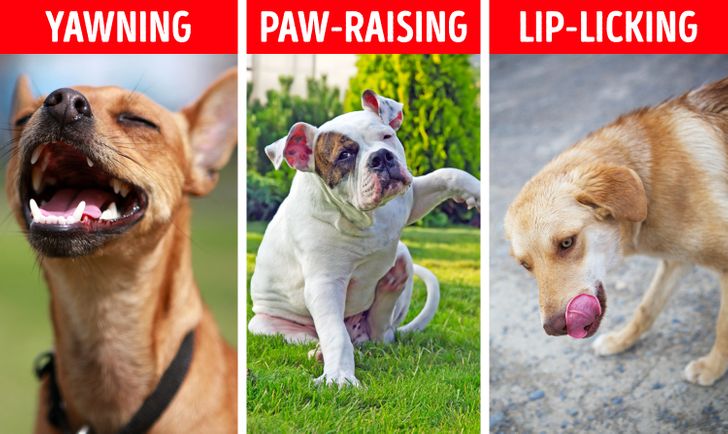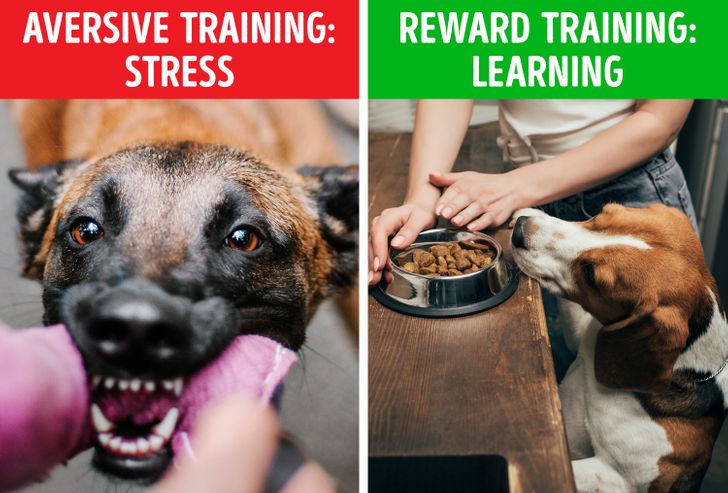So these 'experts' basically punished a group of dogs for no reason to find out something that is common knowledge.
Study Discovers That Yelling at Your Dog Has a Destructive Impact on Its Mind
Deep down many people assume that they hurt their dogs when they yell at them, after all we might lose our temper, but not our empathy. A study in which more than 90 dogs participated just confirmed this and discovered that yelling at them can have lasting negative effects on their mental state.
We at Bright Side want to raise awareness about these discoveries, so today we’re sharing the results of that study with you.
The divide
Researchers from the University of Porto, in Portugal, led by Dr. Ana Catarina Vieira de Castro, conducted their study on companion dogs to determine whether yelling and using aversive training has a negative effect on them.
For this, they selected 92 companion dogs and divided them into 2 groups: those trained using reward-based methods, like games and treats, and those trained using aversive-based methods, like yelling or leash-jerking.
The study measured the signs of nervousness in dogs.
The scientists set out to observe the behavior of the animals in training, in both positive and negative reinforcement method groups. This way they could detect the signs of stress in dogs like yawning, leg lifting, yelping, and lip-licking, as well as their level of tension or relaxation.
In addition, they took saliva samples from the dogs of both groups to identify chemicals related to anxiety and nervousness, like cortisol. Using these samples, they were able to calculate the stress level of the dogs in each group. It’s not surprising that the dogs that were trained using punishment had higher levels of stress than those in the other group, but the consequences of the study went further.
The results weren’t surprising , but the consequences were.
The researchers visited the dogs a month later to monitor the extent of the impact that their type of training had on them. For this they developed a simple experiment.
Dogs of both groups had to enter a room on numerous occasions where a bowl of food would or would not contain a treat.
While the positive reward group were faster to reach the learning criterion of where to find the bowl with food, dogs who were trained with negative reinforcement took more time.
According to researchers, this indicates that using positive reinforcement with games and treats with a dog is more effective for long-term training, than using negative reinforcements with raised voices and the use of power in a negative way.
Stress not only affects dogs during training, it stays around long term.
“Our results show that companion dogs who were trained using aversive-based methods experienced poorer welfare, as compared to companion dogs trained using reward-based methods, at both the short- and the long-term level.”
The dogs in the first group were more stable, relaxed, and positive, while the dogs in the second group showed higher levels of cortisol, stress, and negativity, which had a harmful impact on their well-being, that lasted for weeks or even longer.
So, it’s not only harmful to dogs’ health to treat them aggressively, but it’s also not very effective in shaping their behavior.
Which training methods do you use with your dog? Do you have any advice on how not to lose your patience? Share your tips with us in the comments.
Comments
yelling at plants also has impacts. i means.. who like being yelled at? ?
Poor dogs, I hope they were atleast compensated afterwards for being treated so badly for no reason :/
We have a dog at home and he is super energetic. I always hang out in my room while the rest of the family is downstairs, with the dog.. I don't think he really hates me but I wouldn't say he loves me. He will be happy when he sees me but only if no one else is at home. I sometimes yell at him because he is barking during dinner and my family doesn't like it when I yell at him. I have asked them to teach the dog not to yell while we eat but to no success. any tips?
Very mean of them
Related Reads
12 Times Rich People Proved They Live in a Different Universe
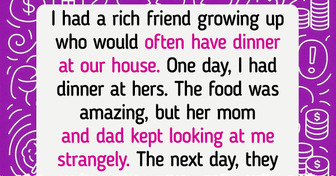
13 Stories About Amazing Coincidences That Are Hard to Believe In
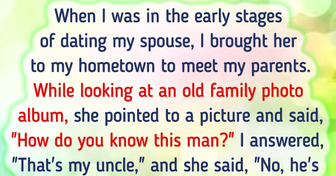
My MIL Made a Scene at My Birthday Party and Got Exactly What She Deserved

20+ Waiters Talk About the Most Awkward Dates They Witnessed Firsthand

11 Real Concert Stories That Prove Anything Can Happen at a Show
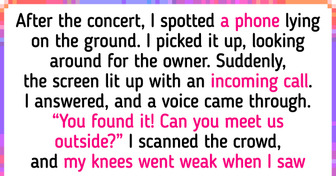
I Refuse to Let My Daughter, 12, Share a Room With Her Stepbrother, 14
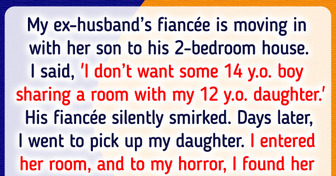
12 Workplace Dramas More Stressful Than a Live News Broadcast

I Was Never the Favorite Child — Now I Refuse to Help My Parents After They Gave My Sister a House

10 Weird Stories About Ex-Lovers That Prove Moving On Is the Best Decision You Can Make

12 People Who Faced an Incredibly Repulsive Situation

My Mother-in-Law Stole My Jewelry Collection, So I Divorced Her Son

15 True Stories That Could Be on Netflix’s Must-Watch List


